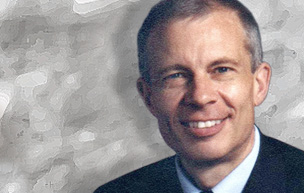Independence Day: In the early years of our State it was one of only two legal holidays — the other being election day. (Christmas did not win such recognition until 1858).
This year’s Independence Day is a special one, as the 80th anniversary of one of the more compelling testimonials in the annals of American sports.
For it was July 4, 1939, that the New York Yankees set aside as its tribute to Lou Gehrig.
Though recent attention here in Maine has deservedly been given to celebrated columnist and former Sportsmen’s Alliance Executive Director George Smith for his courageous confrontation of the disease that bears Gehrig’s name, nationally it was first brought out of the shadows by the famed Yankee first baseman.
Until Gehrig’s, those with it were often shunned by society as if it had been a contagious scourge. Its victims were given little sympathy. They were sometimes relegated to isolation chambers reminiscent of those with tuberculosis or smallpox.
Lou Gehrig changed all of that. This he did by making the public realize the disease was one for which its victims did not deserve to be ostracized.
The day of the scheduled July 4 tribute to Gehrig, his baseball colleagues, mentors and proteges stood up to pay a series of tributes.
The ever modest Gehrig demurred and initially insisted he was not to have a speaking role.
The more than 62,000 fans on hand, however, had other ideas, shouting out deafening demands that Gehrig himself be heard.
In response, Gehrig – the onetime Columbia University aficionado of literature rose to the occasion. His impromptu remarks are sometimes called the Gettysburg Address of baseball. Excerpts included:
“Fans, for the past two weeks you have been reading about the bad break I got. Yet today I consider myself the luckiest man on the face of this earth. I have been in ballparks for seventeen years and have never received anything but kindness and encouragement from you fans….
“When the New York Giants, a team you would give your right arm to beat, and vice versa, sends you a gift – that’s something. When everybody down to the groundskeepers and those boys in white coats remember you with trophies – that’s something. When you have a wonderful mother-in-law who takes sides with you in squabbles with her own daughter – that’s something. When you have a father and a mother who work all their lives so you can have an education and build your body – it’s a blessing. When you have a wife who has been a tower of strength and shown more courage than you dreamed existed – that’s the finest I know.
“So in closing in saying that I may have had a tough break, but I have an awful lot to live for.”
Born on the Fourth of July

Paul Mills holds silhouettes of John Corbett and his wife, Lucy, at their gravestones in 1976 in Riverside Cemetery in Farmington. Lewiston Sun photo
One of my favorite ways of remembering this unique American holiday is through a personal ancestor.
This is John Corbett, my fourth great grandfather. He was born on the day that independence itself was proclaimed, July 4, 1776.
Though a native of Milford, Massachusetts, he came with his parents and two brothers to Farmington at the age of 5 in 1782, they being one of the first eight European families to spend the winter there.
Civic duty was also a trademark of the family’s patriarch, John’s father, Peter Corbett, a Revolutionary War soldier who was the chairperson of the Farmington Board of Selectmen for the first seven years after its incorporation in 1794.
John himself married Lucy Proctor and they became the parents of 12 children. Among them was Hannah, whose son Cyrus Ramsdell in 1858 built “The Octagon,” still a major landmark in Farmington today.
John was a successful farmer, bringing one of the original lots in town under cultivation. The grave sites of himself and his wife, Lucy, are in the southern section of Farmington’s Riverside Cemetery.
Though it was often customary for such sites to bear a birthdate, in John’s case there is nothing to bring attention to his first day of life.
Having died in 1846 before the effective advent of modern photography, there are no photographic likenesses but there are silhouettes of himself and his wife.
His tombstone epitaph observes:
“Hark my friends and hear the sound
My years have rolled away
My body sleeps beneath the ground
Till the resurrection day”
Whether it be Lou Gehrig’s Fourth of July pronouncement just 80 years ago or John Corbett’s immortal date of birth, Independence Day continues to resonate as an occasion of memorable milestones.
Paul H. Mills is a Farmington attorney well-known for his analyses and historical understanding of public affairs in Maine. He can be contacted at pmills@myfairpoint.net
Send questions/comments to the editors.



Success. Please wait for the page to reload. If the page does not reload within 5 seconds, please refresh the page.
Enter your email and password to access comments.
Hi, to comment on stories you must . This profile is in addition to your subscription and website login.
Already have a commenting profile? .
Invalid username/password.
Please check your email to confirm and complete your registration.
Only subscribers are eligible to post comments. Please subscribe or login first for digital access. Here’s why.
Use the form below to reset your password. When you've submitted your account email, we will send an email with a reset code.